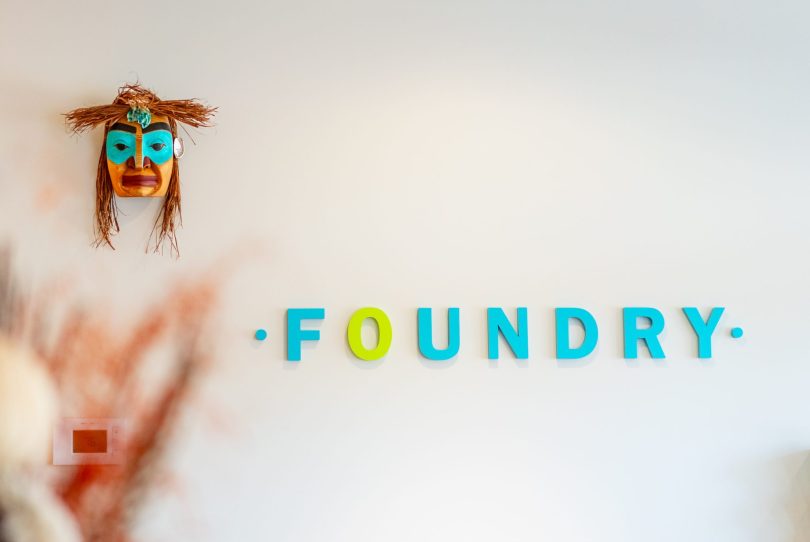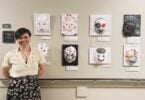The Cariboo Chilcotin is a breathtaking expanse of mountainous ranges, sweeping plateaus, and iridescent lakes. These lands have served as a refuge and home for both those who live here and those passing through. The Tsilhqot’in, Dãkelh Dene, and Secwepemc Nations are stewards of these ancient lands.
In the Williams Lake community, Foundry Cariboo Chilcotin, based on the Foundry model started at St. Paul’s Hospital in 2015, provides free and confidential services for youth ages 12-24. Youth from diverse cultural backgrounds visit the centre to access a variety of wellness services, including counselling, peer support, primary care, wellness programs, and prosocial groups.
Providing Indigenous ways of knowing
Service providers dedicate themselves to including Indigenous ways of knowing and being as part of the youth wellness that is offered at the centre and provide space to connect with partner First Nations communities.
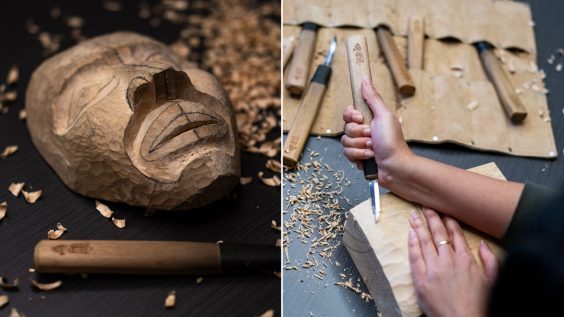
According to Mike, the Centre’s Manager, culturally informed healthcare is at the forefront of the centre’s operations.
What is culturally informed healthcare?
“I think cultural care revolves around safety. I think our current healthcare systems struggle to consider and adapt to First Nations’ family structures and ways of thinking. When this happens, youth and their caregivers might not feel seen or represented for who they are. They may not feel safe,” says Mike.
“We want culturally informed healthcare woven into the day-to-day, so it is an everyday way of being,” adds Mike.
According to Kourtney, the centre’s Community Engagement Planner, Foundry Cariboo Chilcotin strives to be culturally informed, inclusive, and a low-barrier space in an area that is troubled by social concerns often found in rural and remote towns. Youth living in high-risk, chaotic, and even dangerous circumstances use the centre as a safe place to rest and find sanctuary, if only temporarily.
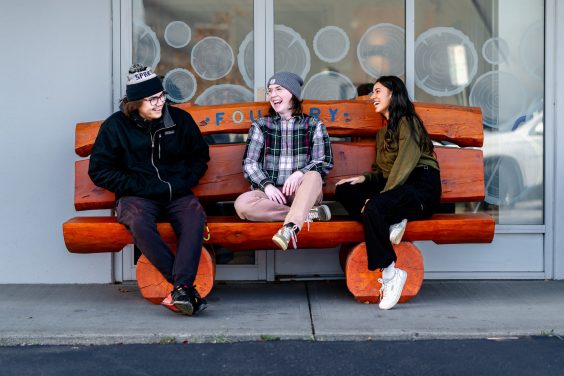
Lillian is a 23-year-old peer support worker at Foundry Cariboo Chilcotin and has been part of the centre’s community for about a year. When she’s not helping youth navigate Foundry’s wellness resources and health services, Lillian facilitates groups like Cultural Circle, where youth come together to learn beading, dream catcher making, and moccasin making.
Lillian shares that she never thought she would become a youth peer support worker when she first visited Foundry nearly a year ago to access support herself. One of her earliest dreams when she was in high school was to become a police officer.
“I was permanently in foster care after I turned ten and until I aged out, and while on my healing journey, I was thinking about how I wanted to connect more with people in general, and thinking about how when I was in foster care, how much I wanted a mentor and a place to go where people were welcoming and kind,” shares Lillian. “I was talking to my counsellor about this, and that’s when she first told me about Foundry Cariboo Chilcotin!”
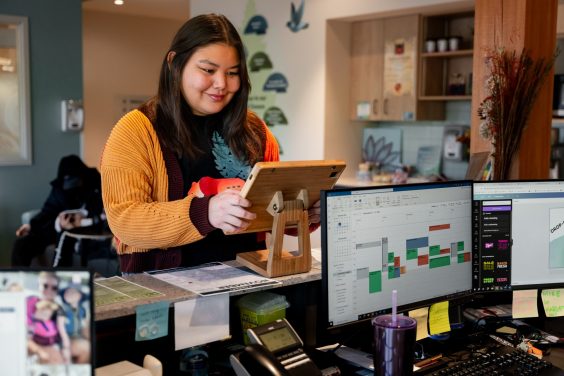
Foundry Cariboo Chilcotin is unique in its approach to serving and supporting the First Nations youth seeking wellness resources at the centre. Decolonizing healthcare and dismantling the systemic racism that has underpinned Western healthcare is a crucial part of reconciliation and healing for many First Nations youth.
“Quality health care often starts before the introduction of clinical doctors; it is about being proactive and taking a holistic approach to health. I think when youth reclaim and reconnect with their traditions and culture, it helps them find and make a new path, a healthier path, of their own; otherwise, they end up internalizing a lot of the hurt, anger, and generational trauma from their past. They get stuck in the past.” shares Lillian.
“The integrated care model offered by Foundry allows us to be more in alignment with indigenous ways of knowing and being by offering a more holistic pathway to healthcare,” says Rylee, another youth peer support worker at Foundry Cariboo Chilcotin.
The center continues to grow and learn by meeting youth exactly where they are at in their own unique healing journeys, and by acknowledging and adapting to the community’s unique cultural landscape and everchanging needs. At the end of the day, the centre’s commitment to keep learning and growing is a step forward on the long journey of reconciliation and healing.
This story was written by staff at Foundry Central Office.

